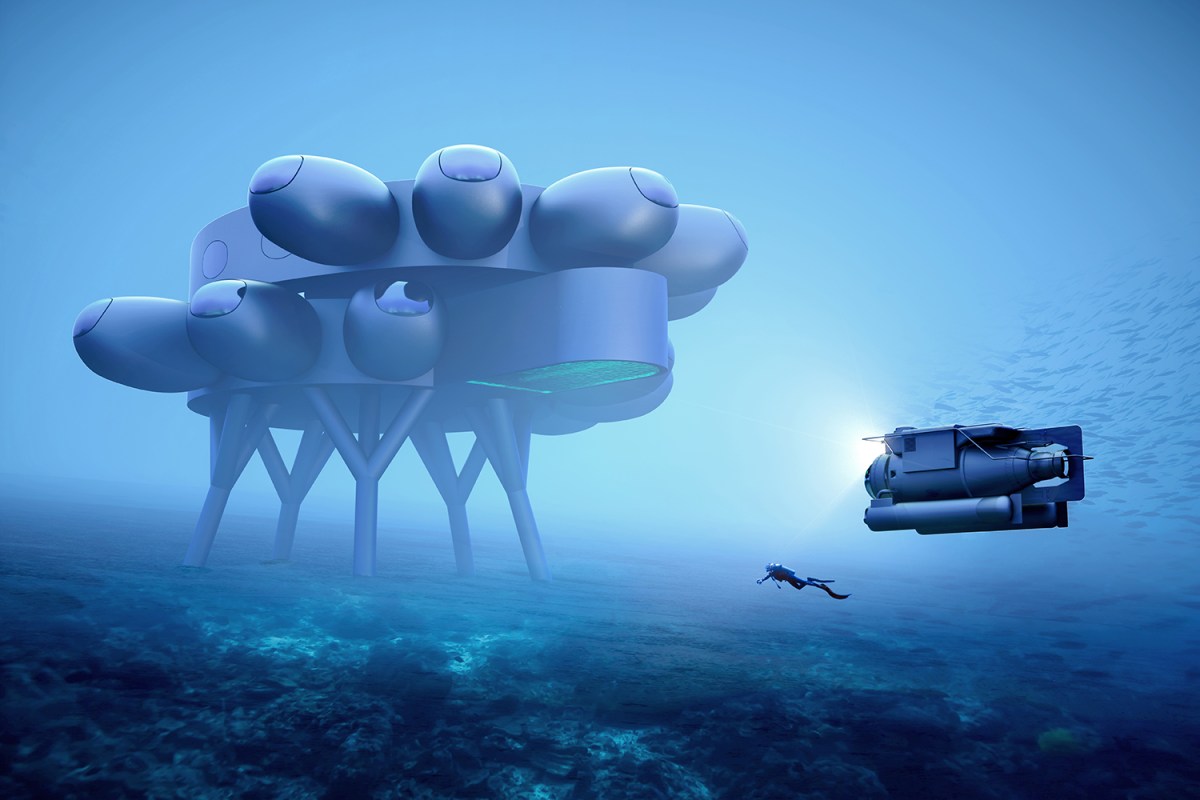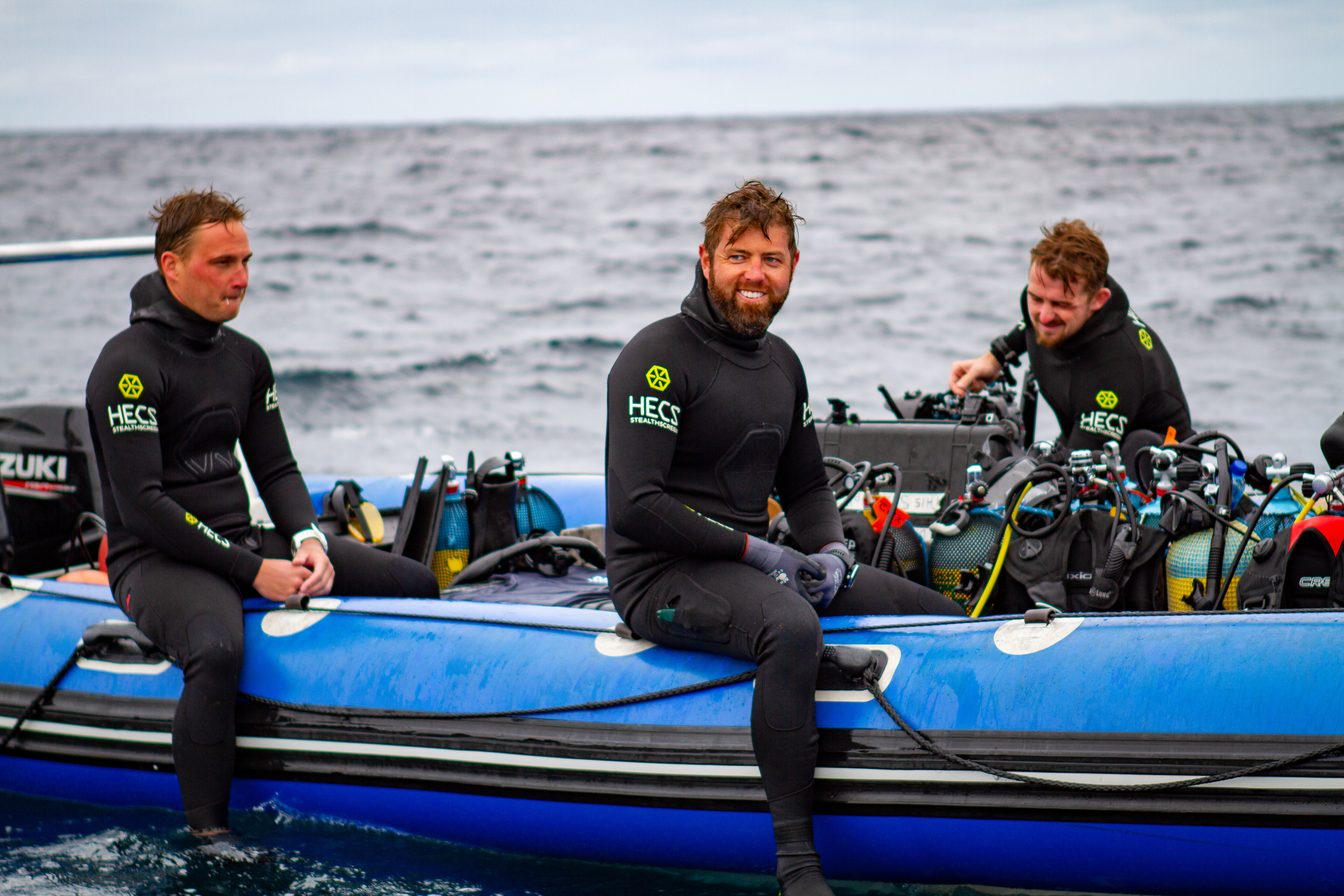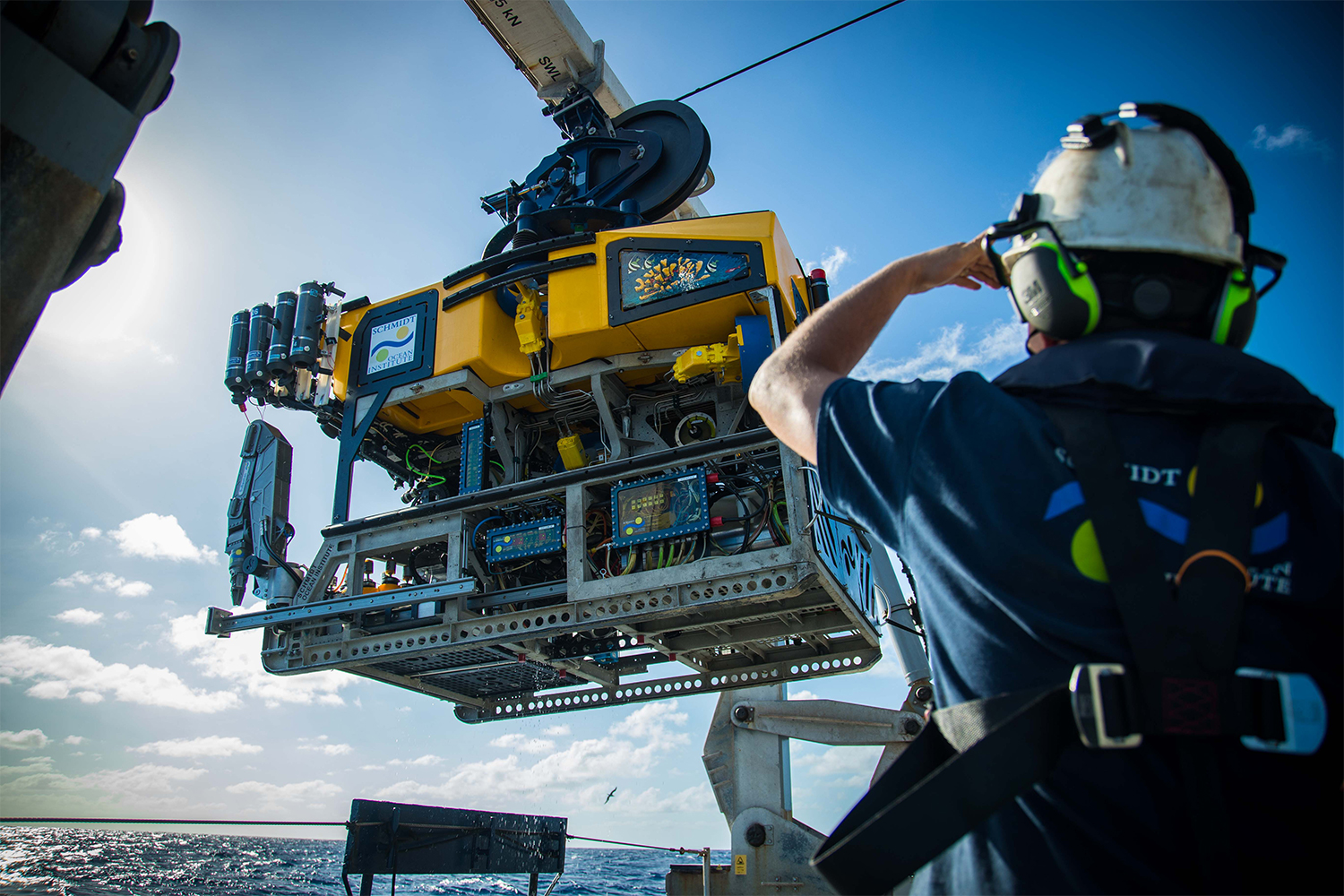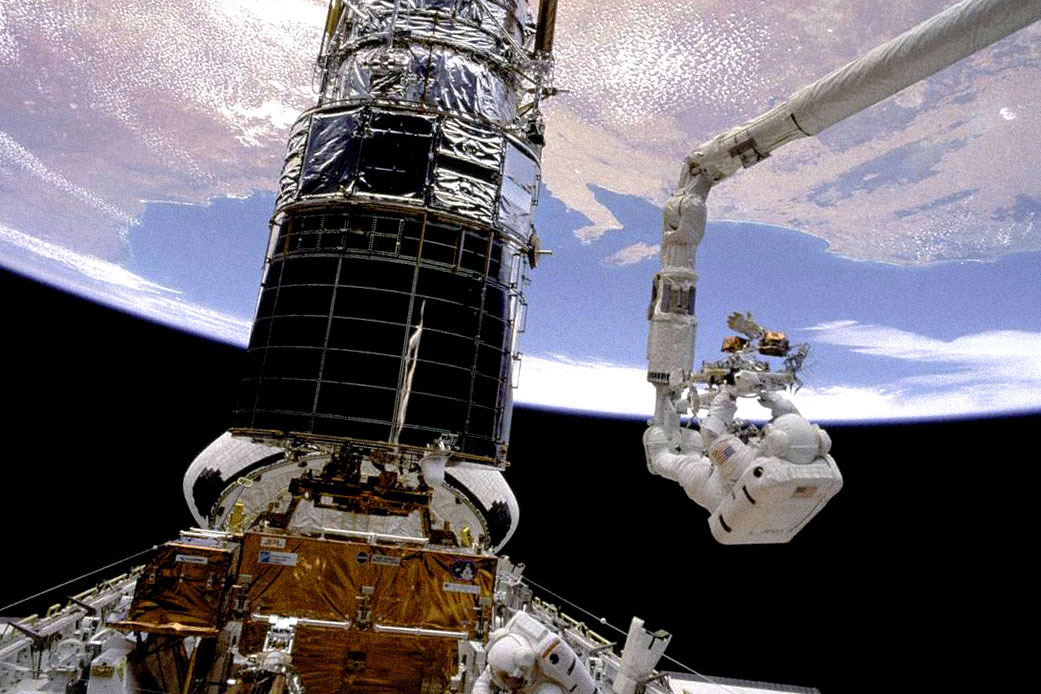The current state of ocean exploration is less about human voyagers in red caps on the seafloor, and more about technology that replaces the need to send our fragile bodies into the inky depths. As we saw in a recent look at the expeditions that have taken place during the pandemic, robots are in, modern-day Jacques Cousteaus are out.
One person hoping to reverse that trend is Fabien Cousteau, the 53-year-old grandson of the famed explorer. In a new in-depth feature, Bloomberg writes about the man hoping to carry on his grandfather’s legacy, and more importantly the way he intends to do that: by building Project Proteus, a research station he likens to “the International Space Station underwater.”
“As our life support system, the Ocean is indispensable to solving the planet’s biggest problems,” Cousteau said in a press release when Proteus was first announced back in July. “Challenges created by climate change, rising sea levels, extreme storms and viruses represent a multi-trillion-dollar risk to the global economy. PROTEUS™, contemplated as the first in a network of underwater habitats, is essential to driving meaningful solutions to protect the future of our planet.”
After being public for half a year, Bloomberg has more details on what the facility would look like. It’s currently planned to sit off the coast of Curaçao, the Dutch Caribbean island, and have enough space for up to 12 people, “with a central body anchored to the seabed, surrounded with modular pods used as laboratories, sleeping quarters, and medical bays.” (The conceptual, futuristic renderings come via Yves Béhar, the heralded Swiss designer.)
The problem isn’t the engineering of Proteus or finding willing undersea inhabitants (the story details the time Cousteau spent 31 consecutive days in a similar facility), it’s finding someone to pay for it. The project is expected to cost about $135 million, and while one investment firm has signed on, Cousteau is attempting to tread the delicate balance between high-priced exploration and research with the concessions one must give to well-heeled investors, something his late grandfather knew all too well.
Read the full feature at Bloomberg here.
Thanks for reading InsideHook. Sign up for our daily newsletter and be in the know.


















